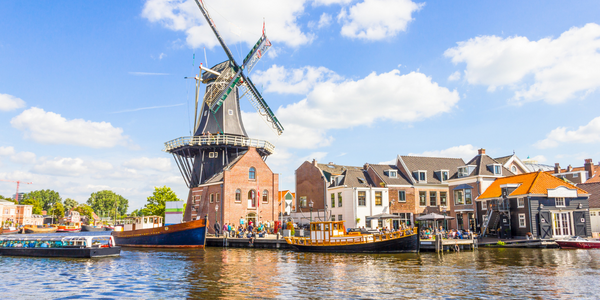Download PDF
COSLA Excellence Awards 2011
Technology Category
- Analytics & Modeling - Predictive Analytics
- Functional Applications - Fleet Management Systems (FMS)
Applicable Industries
- Cities & Municipalities
- Recycling & Waste Management
Applicable Functions
- Facility Management
- Logistics & Transportation
Use Cases
- Fleet Management
Services
- System Integration
- Training
The Challenge
Sustainable waste management was a key priority within Renfrewshire due to the environmental impact of landfill disposal and vehicle emissions. Despite improvements in recycling rates, significant changes were needed to meet Renfrewshire’s SOA commitments and national Zero Waste Targets. A revised methodology for residual waste and recycling collection was devised to allow co-mingled collection of more recyclate material and reduce capacity to collect residual waste by moving from weekly to fortnightly kerbside collections. Council approval was given in January 2009, with significant support from Elected Members and the public. A project board was established, and a systematic project plan was devised using the Council’s Project Management Framework to manage the interdependencies of the four key workstreams: service rerouting, procurement, communications, and HR.
About The Customer
Renfrewshire Council is a local government authority in Scotland responsible for providing a range of public services to the residents of Renfrewshire. The council is committed to sustainable waste management and has been working towards increasing recycling rates to meet both local and national targets. With a population of over 170,000, Renfrewshire Council serves a diverse community and aims to implement innovative solutions to improve public services. The council has a strong focus on environmental sustainability and has been actively involved in various initiatives to reduce its carbon footprint and promote recycling. The council's waste management services are crucial in achieving these goals, and they have been continuously working to optimize their operations to provide efficient and effective services to the residents.
The Solution
The service rerouting project aimed to support the introduction of co-mingled recycling and residual waste collection services to over 80,000 households across Renfrewshire. The project involved the development of a dynamic technology-based routing system using RouteSmart software, which streamlined collection routes and minimized the environmental impact by reducing mileage, fuel consumption, and the service’s carbon footprint. The project team, comprising cross-service representatives and partners, utilized the Council’s Project Management Framework to develop a project plan that ensured effective coordination and management of deliverables, work streams, and timescales. Key tasks included purchasing RouteSmart software, training Council staff, conducting a GPS tracking survey of existing routes, and creating a north and south partition for collections. The dynamic re-routing software developed more efficient routes using existing Council geographical information and local employee knowledge, significantly reducing mileage, fuel consumption, and carbon footprint. The project also included a comprehensive communications plan to minimize disruption to residents and ensure that collections took place in a single area on a single day.
Operational Impact
Quantitative Benefit
Related Case Studies.

Case Study
Turning A Stadium Into A Smart Building
Honeywell created what it called the “intelligent system” for the National Stadium in Beijing, China, turning the venue for the opening and closing events at the 2008 Summer Olympics into a “smart building.” Designed by highly controversial artist Ai Weiwei, the “Bird’s Nest” remains one of the most impressive feats of stadium architecture in the world. The 250,000 square meter structure housed more than 100,000 athletes and spectators at a time. To accommodate such capacity, China turned to Honeywell’s EBI Integrated Building Management System to create an integrated “intelligent system” for improved building security, safety and energy efficiency.
.png)
Case Study
Smart Street Light Network (Copenhagen)
Key stakeholders are taking a comprehensive approach to rethinking smart city innovation. City leaders have collaborated through partnerships involving government, research institutions and solution providers. The Copenhagen Solutions Lab is one of the leading organizations at the forefront of this movement. By bringing together manufacturers with municipal buyers, the Copenhagen Solutions Lab has catalyzed the development and deployment of next-generation smart city innovations. Copenhagen is leveraging this unique approach to accelerate the implementation of smart city solutions. One of the primary focus areas is LED street lighting.

Case Study
Buoy Status Monitoring with LoRa
The Netherlands are well-known for their inland waterways, canals, sluices and of course port activities. The Dutch Ministry of Infrastructure indicates that there are thousands of buoys and fixed items in and near water environments that would profit from IoT monitoring. One of the problems with buoys for example, is that they get hit by ships and the anchor cable breaks. Without connectivity, it takes quite some time to find out that something has happened with that buoy. Not to mention the costs of renting a boat to go to the buoy to fix it. Another important issue, is that there is no real-time monitoring of the buoys at this moment. Only by physically visiting the object on the water, one gains insight in its status.

Case Study
China Mobile Smart Parking
Smart Parking, powered by NB-IoT technology, is making it easier for drivers to find free parking spots. Cities can better manage their parking assets and maximize the revenue available to them as a result. Drivers searching for parking create congestion and pollution by circling and hunting for available parking. Smart Parking services are able to significantly ease these problems by guiding a driver directly to a parking space.

Case Study
Barcelona Case Study
Barcelona’s heavy traffic and its associated high levels of pollution were the primary factors that motivated some companies and universities to work on strategies for improving traffic in the city centre. Bitcarrier is one of the technologies involved in the In4Mo Project, whose main objective is to develop the applications that form the core of smart mobility, one of the fundamental pillars of the smart city concept.





